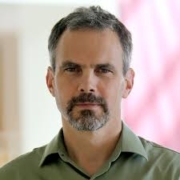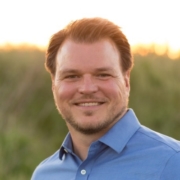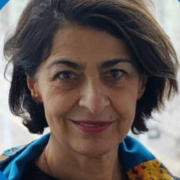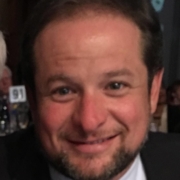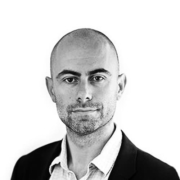Low-fee private schools are a hot topic in educational research. What happens when public schooling is provided by for-profit companies that charge families monthly user fees? What happens when those companies receive government funds? Researchers around the world have been exploring various issues around for-profit public schooling.
One company has been of particular interest. Bridge International Academies operates schools in Africa and Asia and is supported by people such as Bill Gates and Mark Zukerburg. Bridge International uses a standard curriculum that is read off of a tablet computer. This low-cost model of schooling relies on paying small wages to instructors, who simply read the curriculum, and fees paid by students to attend (or government subsidies). This type of schooling can be extremely profitable when delivered to scale. In the most extreme case, in Liberia, the Ministry of education is trying to outsource its entire primary education system to Bridge International.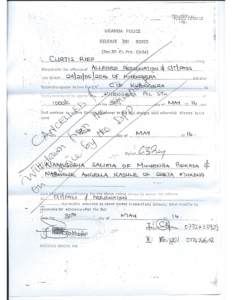
Given Bridge international’s work, it’s no wonder that researchers are interested in exploring what’s happening at the policy level and at the school level when it comes to low-fee private schools.
In May this year, Canadian Researcher Curtis Riep was in Uganda researching Bridge International’s work. At one of his meetings, held at a local café, he was arrested for impersonation and criminal trespass
ing while collecting data. These charges were later proven to be baseless and he was released and not charged (see image on right).
The interesting thing, however, is that Bridge International seems to have played a role in Curtis’ arrest. Before he was arrested, for instance, Bridge International took out a public notice in New Vision, a local newspaper (see image below), warning the general public of Dr. Riep’s presence.

My guest today takes us through this odd case and explores the larger issues around Bridge International. Angelo Gavrielatos is a project director at Education International, the Global federation of teacher unions and the organization that funded Curtis Riep’s research.
After recording the show with Angelo, new developments unfolded in Uganda. Below the fold, you can read the latest updates.
The Ugandan ministry of education has recently closed many schools that did not meet minimum standards, including schools operated by Bridge International. Although the connection between Curtis Riep’s research and the recent closures are unknown, these events suggest Curtis was likely on to something important:
Bridge International Academies appears to be losing its foothold in Uganda following a government decision to close 87 for-profit primary schools, including those belonging to Bridge, after failing to comply with minimum standards and regulations. (Link)
UPATE: The research Curtis was working on has finally been published. From Education International’s (EI’s) press release:
EI’s analysis of Bridge’s curriculum and pedagogy reveals serious implications for teachers and students that fundamentally alters the nature and practice of education itself. The company has created a business plan based on strict standardisations, automated technology, cheap school structures, and internet-enabled devices that are used to carry out all instructional and non-instructional activities that make up an education system.
You can download the full report here.
Citation: Gavrielatos, Angelo, interview with Will Brehm, FreshEd, 36, podcast audio, August 8, 2016. https://www.freshedpodcast.com/angelogavrielatos/
Will Brehm 2:03
Angelo Gavrielatos, welcome to FreshEd.
Angelo Gavrielatos 2:10
Welcome. Thank you.
Will Brehm 2:12
So Curtis Riep is a researcher at the University of Alberta and he was arrested for impersonation and criminal trespassing while collecting data there. Why was Curtis in Uganda?
Angelo Gavrielatos 2:27
Curtis Riep is a scholar from the University of Alberta and during the month of June and just prior to June, he was in Uganda researching on behalf of Education Interational, the global union federation of teachers. And his research was focusing on the operations of Bridge International Academies in that country. Curtis is a highly regarded, highly respected scholar, had been conducting research into privatization of education in Ghana, in the Philippines and elsewhere. A highly regarded young scholar.
Will Brehm 3:07
As a researcher myself, it’s a huge fear that I have of going to a country and asking sensitive questions and then getting in trouble for that. Can you describe how or why Curtis Riep was arrested?
Angelo Gavrielatos 3:25
Well, I can describe to you how he was arrested. Why he was arrested, one can only speculate because clearly the allegations that were made by Bridge International Academy have been found to be, and proven to be, false and without substance. So the question with respect to why he was arrested we’ll come back to shortly. But in terms of how he was arrested, one morning, he was meeting with senior officials from Bridge International Academies in Kampala at a coffee shop, and during their meeting, they obviously tipped off the police who proceeded to that venue to apprehend Curtis on the basis of charges that they’d made. Prior to these allegations that had been made by Bridge International Academies, they had also bought space in a national newspaper and printed what we would describe as a wanted photo with Curtis’ photo on it alleging impersonation and criminal trespass, saying that he was wanted by the police. Now this is an extremely irresponsible set of actions on the part of this company. And one can conclude, to come back to your first question, why he was arrested, one can conclude that this company is very clear in its intent of wishing to stop any scrutiny, any external scrutiny, of its operations which have come under considerable criticism by scholars across the globe. And I’m talking about their operations of course in Kenya and elsewhere.
Will Brehm 5:11
And we’ll get into that, what they actually do, in a second. But first, it’s just amazing to think that the police and Bridge International have such a close relationship that Bridge International could simply call on them to arrest someone that quickly.
Angelo Gavrielatos 5:31
Well, I am not going to go into the relationship that may or may not exist between Bridge and the police. But what we can say is that they made certain allegations. Allegations which have been shown to be false without substance. But that didn’t stop a young researcher having been arrested, and I would say terrorized and traumatized by that process whilst going about his business as a researcher. It is important to note that prior to visiting any school, Curtis has stated that he tried to make contact with the academy manager to alert them to the fact that he was visiting, and where that wasn’t possible, he reported to the front office of schools to announce his arrival and request access to the premises. To thereafter find yourself the subject of a wanted poster, and to find yourself arrested on allegations, which I repeat, were shown to be without substance – they were dismissed following investigation by the police and the public prosecutor. To have found yourself having been arrested and to be driven to a police station some 90 minutes from where you were arrested, having passed two or three police stations along the way, is quite traumatic. I think it is also important to note that upon his arrival at that police station, there were news crews, media crews awaiting his arrival. Clearly, one could only suspect having been tipped off by Bridge National Academies in order to try to get some mileage out of this very, very ugly episode.
Will Brehm 7:33
It seems like it was planned, right? Because the police came pretty much soon thereafter he entered the cafe to have his meeting and his research meeting. From my understanding, the lawyer for Bridge International was sitting in the police car when he was arrested.
Angelo Gavrielatos 7:53
That is correct.
Will Brehm 7:54
And then like you said, these reporters were at the police station when he arrived some 90 minutes later. It just seems like there was such a high level of organization to target Curtis Riep.
Angelo Gavrielatos 8:10
Well, if anyone would conclude that this was set up, their conclusion would be very much within the realm of high possibility. You know, these things just don’t happen. The fact that you said that their lawyer was in the same police car is just outrageous. But I’ll say this, if Bridge International Academies thought that they were going to get some political mileage out of what they do, they’ve made a very big mistake. They have been roundly condemned by scholars, academics, researchers, every serious education commentator in the world is just shocked and appalled by what they’ve done.
Will Brehm 9:01
Do you know what Curtis was researching specifically that that you know made Bridge so nervous?
Angelo Gavrielatos 9:08
Well, Curtis was researching Bridge’s operations in Uganda. He was looking at all aspects of their operation. He was also investigating why it is that the Ugandan authorities had stopped, had suspended any further expansion of Bridge’s operations in Uganda. I think it is important to note that this company has very little regard for the nation state and national laws, and they seek to operate in ways that are not entirely consistent with national requirements with respect to the provision either looking for loopholes, seeking to exploit loopholes, or seeking to have the government bend in terms of their operations. For example, in Kenya – and this is because their business plan is predicated upon this – in Kenya, they seek to register themselves as “informal schools”, so that the requirements applicable to schools are not as stringent; the bar is set lower. But they are for all intents and purposes schools. So what they do is they operate on a basis where they don’t meet requirements with respect to the employment of qualified teachers. In fact, in Kenya, they employ high school graduates and have resisted, have lobbied strongly and strenuously and persistently against the government, which has sought to impose requirements such as guaranteeing at least that half of its employees are qualified teachers.
They do not follow the national curriculum, and in fact, in Kenya, the head of the Curriculum Authority said that they don’t recognize their curriculum. And other such, and there are other such examples where they fail to operate consistent with guidelines. In Uganda, for example, the reason why their operation has been suspended is because they don’t observe the law in terms of the employment of teachers, nor in terms of appropriate learning facilities. Again, what we’re seeing here is a company that’s operating in such a way to satisfy its business interest, employing unqualified staff delivering a curriculum that’s not consistent with national standards, and often facilities that are not conducive to a school of teaching and learning, and do not satisfy national standards. So Curtis was investigating all of those things, and they clearly don’t want the spotlight put on them.
Will Brehm 11:47
Why do you think a government like Uganda would contract Bridge International Services after you articulated so many of the issues that Curtis was researching?
Angelo Gavrielatos 12:01
Well, I’m not privy to the full history, nor the terms that saw Bridge initially enter into Uganda, and I certainly await Curtis’ report as no doubt you do and many of your listeners. But what we do know is that Bridge started to operate in such a way that was inconsistent with the terms that had been determined, and hence the government suspended any further expansion on their part, the part of Bridge, subject to certain reviews of their operations, not least of which go to questions of meeting minimum standards. So we eagerly await to see the report, what the findings are there. And we certainly hope that the government maintains where it already has existing legislative requirements. And where it doesn’t, strengthen legislative requirements to ensure the social contract that exists between governments and students is not broken. And by that social contract, what I mean is that governments have apart from a political obligation, a moral obligation.
Governments for good reason compel children to go to school; we support that. But having compelled children to go school, that brings with it a political and moral obligation. And given that political moral obligation, we insist the governments ensure that when it comes to the provision of schooling, non-state actors must adhere to certain minimum requirements. Those minimum requirements, which go to the questions of the employment of qualified teachers. Those minimum standards, which go to the condition of ensuring that the curriculum delivered, is consistent with national standards. Legislative requirements, which go to the question of schooling facilities to ensure that those facilities meet minimum national standards. We would certainly hope the government applies those standards that are already in existence properly, enforces them, and where they need to be strengthened, they should be strengthened, because ultimately we are talking about the well-being of children.
Will Brehm 14:17
What sort of fallout has happened since Curtis was arrested, and then found not guilty of any of these charges? In Uganda, what has happened? You said that a lot of people have condemned what Bridge has done, but has there been any more substantial outcomes from this case?
Angelo Gavrielatos 14:38
Well, I know that this matter received considerable media attention in Uganda, as it did internationally. There was some very, very serious and large media interest around the world. That media interest, both internationally and domestically in Uganda, has generated some further discussions. To the best of my knowledge, the government has not altered its position with respect to halting the further expansion of Bridge in Uganda. We believe that the Bridge authorities have been desperately lobbying the government ever since that suspension was put in place. I’m not aware of any further developments there, but certainly, as the Global Union Federation of Teachers Education International together with our national member organization in Uganda – UNATU as it’s called – we will continue to advocate strongly in the interest of students, our members, our teachers, and education workers in the communities we serve. And will continue to advocate that in Uganda and elsewhere, governments must fulfill their primary obligation to properly and adequately fund quality public education, free quality public education for all to include within any legislative framework guarantees that go to the questions of access and equity; issues that go to the question of the respect to the profession in terms of professional judgment, But also we will advocate strongly for the existence and enforcement of a strong legislative framework and minimum requirements for the provision of education. Surely, every child, regardless of background, regardless of who they are, or where they are, regardless of their wealth. Surely, every child’s entitled to be taught by a qualified teacher delivering an engaging curriculum in a safe environment. We will continue to advocate for the achievement of such measures.
Will Brehm 16:40
Do you think if Curtis Riep was not affiliated with Education International, that he would have gone through this ordeal?
Angelo Gavrielatos 16:48
I don’t think we’ll ever know the answer to that question. Can I say this? When we learnt of what was occurring in in Uganda, in Kampala, can I just say to you that we did everything within our power to make sure that Curtis was dealt with, appropriately, expeditiously. And we certainly did everything we could to get him back home safe, back to his loved ones. This was an awful ordeal. Whether he was targeted because of his affiliation with Education International – and by way of his affiliation, he is an independent researcher who was commissioned by EI to do some work. Whether he was targeted for that reason or not, we won’t know, but what I do know is that this has affected him and I certainly hope – and we’re doing everything we can to help him deal with what was an awful set of circumstances. And again, I’ve got to say, the actions of Bridge which have been shown to be without foundation; their actions to print wanted posters or advertisements printed, to call the police to try, and to try and influence the judicial and criminal process in the way that they tried to influence it by taking out that wanted poster, this is mostly irresponsible, and certainly not the behavior becoming of any organization that purports to have the interest of children education at hand.
Will Brehm 18:29
I’d like to just zoom out a little bit here away from this one incident of Curtis Riep being arrested on false pretenses to look at Bridge International kind of globally, because you said they do work in Kenya and they obviously work in Uganda. What other countries are they working in?
Angelo Gavrielatos 18:52
Well, again, let’s start off by saying who Bridge is. Bridge International Academies is a global entity with some very powerful backers. They’re supported by the large global edu business Pearson, the largest global education corporation in the world; they’re supported by billionaires Zuckerberg and Gates, and their foundations; they’re supported by other foundations; they’re supported by the World Bank; and they’re supported by the United Kingdom’s Department for International Development, the aid wing. So they’ve got some very, very strong, influential backers. But ultimately, this is a company that is driven by the profit motive, a company that sets out to make profit. And we believe that when it comes to education, and the provision of education and schooling in particular, the profit motive has no place in dictating what is taught, how it’s taught, how it’s assessed, nor how our schools are organized.
Because in that world, the first victims are students, their teachers, and the communities we serve. Their business plan, when you examine their business plan, and we don’t have much time for me to go in great detail. But their business plan is predicated upon the employment of either fewer teachers, under qualified teachers, or in the main unqualified staff paid at a fraction of the rate of a teacher. On average around the world, plus or minus 5% or thereabouts, about 70 odd percent of a school budget is teacher salary. So you want to make profit, you would basically undercut the provision of teachers or qualified teachers. That’s their first way of making profit. They then go on to make profit through economies of scale. Their product is highly standardized. These high school graduates are not equipped to deliver a lesson as would be a qualified teacher. So what they do is they have all the curriculum material downloaded onto a tablet. And these high school graduates read off that tablet word for word. This is a highly scripted, standardized curriculum developed some where far away, which shows very little regard for cultural and linguistic diversity, let alone respect. But it’s a standardized product read word for word without any deviation from it. And of course, they use facilities which are very simple, and again, reduce costs for them. That is their business plan. So they operate in Kenya. In Kenya, as I said, they use certain loopholes, they seek exemptions, and object to – and lobby against – any government attempt to make them satisfy minimum requirements such as the employment initially of 50% of their staff being qualified teachers, and then the government back down a bit and they said, 30% of your staff. Now that is outrageous. Every teacher employed should be qualified teacher.
Now Bridge goes on so on to say that – and my quote may not be verbatim – but they go on to say, and this has been printed, that there is no “correlation” between teacher qualifications and student outcomes. Now, these are in interesting statements they make, but here is my challenge to Bridge, their supporters, and their most senior supporter, “Would you sacrifice your child to be taught by someone that’s not a qualified teacher?” That is the question I ask of Bridge. And the answer is, I bet you, “No”. I do not think that any of their children are taught by unqualified teachers, high school graduates, reading off a tablet, entirely scripted lesson. They are also operating in Uganda as we said. There is a few conflicting numbers in terms of how many schools I have got in Uganda. But we know they want to expand dramatically over the next little while, but that’s been thwarted. And in Liberia, the government has entered an agreement with them, MOU, where the government has flagged its intentions to outsource its entire primary and pre-primary education system, the whole lot to a private provider and Bridge is at the forefront of that. Also, in a document recently released, a document that Bridge didn’t want people to see, it was an internal document being used – a prospectus of sorts – they indicated their desire to operate 4000 schools in the state of Andhra Pradesh in India with the government and they signed a MOU with the Andhra Pradesh government in September last year. So this is the kind of operation it is, it’s a big operation driven by the profit motive. Standardized education, and not the kind of education, I dare say, as I said earlier, that they would want for their own children. I always say of policy makers, opinion makers, let’s expect and demand everyone else’s child what we wish for our own.
Will Brehm 24:13
So in Kenya and Uganda, and in Liberia, does the government pay Bridge money to basically then hire teachers at a low cost that allows for the profit? And does this then mean that students that attend Bridge International Academies, do they get to go for free, assuming that the governments are the ones paying Bridge International?
Angelo Gavrielatos 24:40
So there’s different models here. In Kenya and Uganda, the students pay fees. Bridge tries to describe these fees and their operations as low fee, affordable schools. But when the fee represents 30, or 40, or whatever it is percent of the daily income of the poorest of the poor, there’s nothing affordable about it. In fact, it is reprehensible. It is offensive. As I said, when when it represents 30% or more of the daily income of the poorest, there’s nothing affordable about it. And when you have more than one child, that’s when we start to see inequalities and segregation start to slip in. Because when you have more than one child, and you have to choose between children, unfortunately, the evidence shows us from elsewhere in the world, that invariably the boy child is privileged over the girl child. In Liberia, the operation is different. In Liberia, they want to manage the school system, and they want to get a management fee from the government for managing their system. So it’s a different operation as opposed to charging fees of students. But again, the management system would be redirecting money that would otherwise be available for education and therefore compromising the education that could be provided. And before I go further, let me just say no one is saying that education systems in these countries are perfect. In fact, there is not a country in the world where the education system is perfect. There is always room for improvement. We talk about the progressive realization of quality education for all. But what we’re seeing is a set of policies being pursued by these large global corporates aided and abetted by governments in some places that are putting in place a set of policies and a set of circumstances that undermine and compromise our ongoing journey to improve education for all. And ultimately, as per the Sustainable Development Goals embraced by the international community in September last year at the United Nations, goal number four: inclusive, equitable and quality education, and lifelong learning for all; and target one of goal four, which says to ensure all girls and boys access quality, free primary and secondary education. What we’re seeing is the undermining of that goal even before the ink had dried.
Will Brehm 27:14
Will Education International commission more work to be done looking at Bridge International?
Angelo Gavrielatos 27:21
We certainly will be commissioning a lot more work on the question of the ongoing commercialization and privatization of education. We released a significant piece of work last week in India. It was launched in Hyderabad and Delhi; launched in Hyderabad on the 17th of July and in Delhi on the 21st of July – that was about the emergence of multinational edu-businesses in Hyderabad. And Curtis’ research is in the pipeline, will be completed shortly. And no doubt you and others will be looking keenly to hear about when it will be released, and you’ll learn about it. And there’s more research projects in the pipeline. You will excuse me by don’t share all of those with you and your listeners, because they’ll be released strategically. And we are intent on maintaining that spotlight on governments and their failure to fulfill their obligation to ensure the achievement of the Sustainable Development Goals by allowing, encouraging, in some cases, facilitating an on-going commercialization and privatization, but we’re also going to keep the spotlight on some large global corporations whose behavior leaves a lot to be desired when it comes to children. And that right, their right, to quality free public education.
Will Brehm 28:45
Well, Angelo Gavrielatos, thank you so much for joining FreshEd.
Angelo Gavrielatos 28:50
Absolute pleasure. Thank you.
Arrested while researching: The case of Curtis Riep and Bridge International


